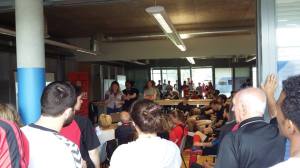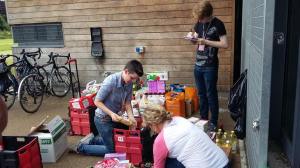Friday night, March 24th saw the culmination of a rollercoaster ride of a season with the CFM Limited AFC Unity Awards Night at the Hidden Gem Cafe. As with last year’s event, the location, the awards and their titles were given a twist on tradition, in keeping with Unity’s status as an “alternative football club.”

Official AFC Unity sponsors CFM Limited put on the event, which honoured players and non-playing personnel alike for all their efforts in a challenging campaign. Every player who completed the campaign was presented with their own award in the spirit of “Unity.”

Sophie Mills was presented the Hope Over Fear Award by manager Jay Baker, who chose her for her three years of commitment to the club (having joined the night after Unity’s first-ever league game), and her dedication and determination throughout the season, fighting for and keeping a consistent place in the first team where she also took on a leadership role and played in various positions for the good of the squad while taking her skills to a higher level. “Millsy” also recovered from the black eye sustained in a heading collision in the final game in time for this photo.

Replacing last season’s Breakout Award, the Takeoff Award was created as the AFC Unity Jets Head Coach’s choice for player of the season, and gaffer Emily Salvin selected Chloe Burditt for her development, commitment, and positivity and for representing the team and the club as a whole so well.

Last year’s Hope Over Fear Award winner, Jodean Wadsworth, this time took the Unity Award as chosen by her own teammates, winning it in a landslide. The season’s top goalscorer, but more importantly than that – as first team co-captains Jane Watkinson and Simone Fenton-Jarvis explained – Jo developed as a player and a person, helped develop newer players in initiatives such as Solidarity Soccer, and had a great attitude throughout the season in-keeping with AFC Unity’s aims of “100% Positivity.”

Far from being a landslide, the AFC Unity Jets found voting on a teammate as players’ player far more challenging as evidenced by the result which at least gave us two clear joint winners: Sarah Choonara and Sue Bagshaw! Player/coach Corinne Heritage presented them both with the When You’re A Jet Award and commended them for their fantastic efforts throughout the season.

Simone Fenton-Jarvis took this season’s Integrity Award for upholding the vision and values of the club and defending it in challenging times. Manager Jay Baker described how she approached AFC Unity with such a shared philosophy that he at first thought it was a rib! She then went on to become first team co-captain. Like last season’s winner Charlotte Marshall, Simone represented the club so well and did so much for it that she followed Charlotte onto the Board of Directors, where she now helps run the club.

Last year there were three Solidarity Award winners for non-playing personnel who helped to develop and progress the club. This year, there was only one: Emily Salvin, who was injured in the Sarah Richards Testimonial in May of 2016 and went on to become the Head Coach of the AFC Unity Jets while recuperating, developing as a footballing brain and as a person, and working hard week in week out to develop the newly-created second team players. Manager Jay Baker heaped praise on her for her commitment and efforts and wished her well for the future.

First team goalkeeper Steph Sargent was presented with the unique CFM Award as selected by the sponsors, represented by Mel Scott and Simone Fenton-Jarvis. Steph was awarded for ‘representing the shared ethos of both AFC Unity and CFM,’ and by staying involved with the team and the club even while injured, promoting the club, and coming back to prove her invaluable worth on the pitch in goal.

Manager Jay Baker praised the AFC Unity Jets present – from a squad of 18 registered players even after call-ups to the first team, he emphasised – for making it to the end of the season, showing integrity themselves in the face of heavy defeats when so many others walked away, he said. He gave credit to Emily Salvin as well as player-coach Corinne Heritage for keeping the team going for so long and commended the remaining nexus of the squad.

As AFC Unity revert back to one highly-competitive squad of 25 registered players to choose a Sunday 16 from, Baker also made a declaration of intent for Unity’s return after spring break, which included an invitation of players – based on attitude, attendance, and ability – to try out for the team; players prioritised for their passion for Unity’s Football Philosophy and playing style; a selection of various formations within that style of play; a trial period that will last into the summer; all incoming players to trial for 4 weeks before being eligible for registration; more team-bonding socials; and promotion of co-captains Jane Watkinson and Simone Fenton-Jarvis to club co-captains, meaning the team captaincy would change around to nurture leadership qualities and collectivism.

Players also thanked Emily Salvin, and Jay Baker and Jane Watkinson (both co-founders of the club) for all their efforts over the season, giving them gifts as tokens of appreciation, which they were very pleased by. The event ended with thanks to Hidden Gem Cafe, photographer Kate Fenton-Jarvis, and CFM Limited who made the Awards Night possible.
Congratulations to all involved with AFC Unity right through to the end of the season and here’s to an exciting future!
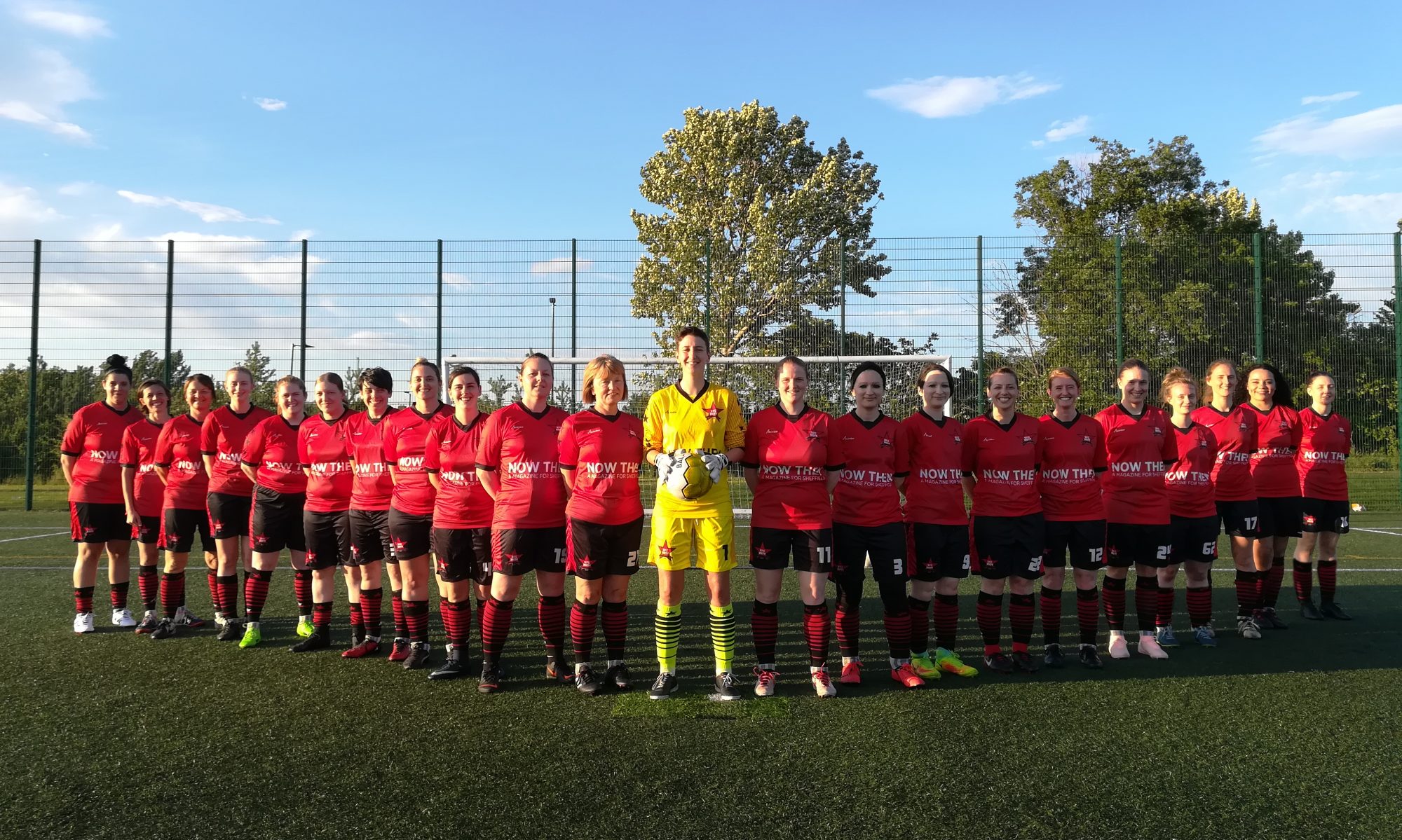
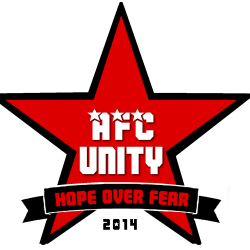

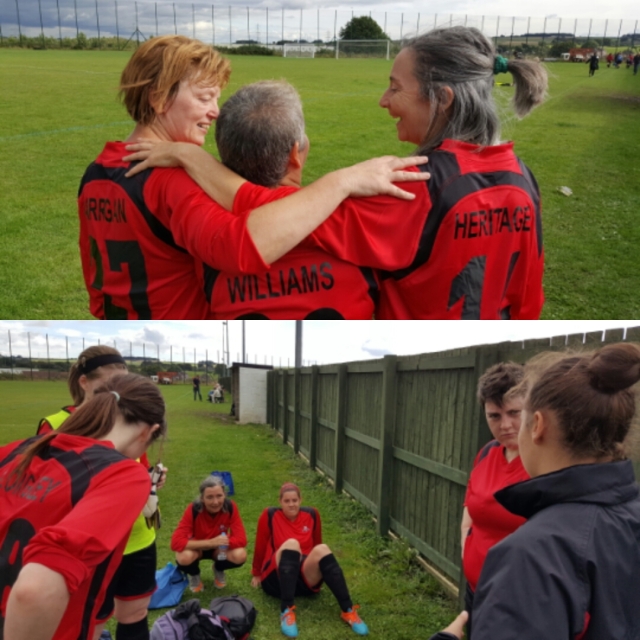 high and ran until almost the end of the extended season, after several players moving on lowered matchday numbers further and finally necessitated its winding up.
high and ran until almost the end of the extended season, after several players moving on lowered matchday numbers further and finally necessitated its winding up.

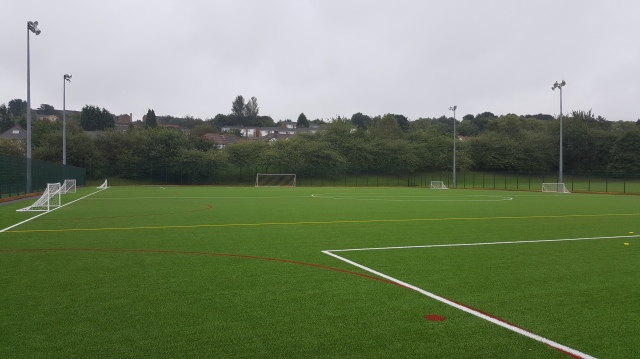
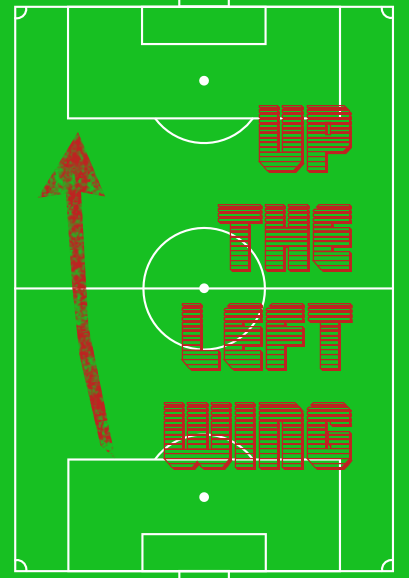 Opinions are like behinds, and everyone has one in football – be it at the top level or even at grassroots, and we all make judgements from our own perspectives, often with little insight into the inner workings of a particular team, and lacking context.
Opinions are like behinds, and everyone has one in football – be it at the top level or even at grassroots, and we all make judgements from our own perspectives, often with little insight into the inner workings of a particular team, and lacking context.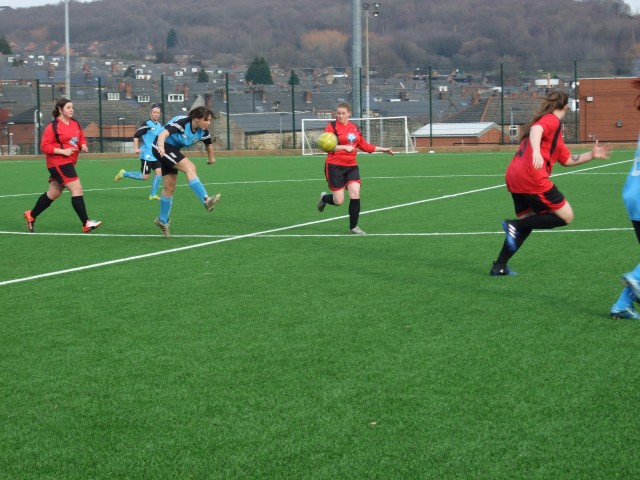 finally starting to look settled – it was only 1-2 at half-time, at which point I tried reverting to last season’s old formation, leaving us with just two forwards unable to apply their pressing style, and under bombardment; conceding six more goals in the 45 minutes that followed, an incredible example of football evolution meaning you can’t go back in time and unlearn something so much harder yet better: it’s hard, even wrong, for us to go back to old styles that don’t suit us anymore. Being defensive means being on the back-foot, and surrendering initiative, and that just doesn’t fit us, as evidenced by that 1-8 loss.
finally starting to look settled – it was only 1-2 at half-time, at which point I tried reverting to last season’s old formation, leaving us with just two forwards unable to apply their pressing style, and under bombardment; conceding six more goals in the 45 minutes that followed, an incredible example of football evolution meaning you can’t go back in time and unlearn something so much harder yet better: it’s hard, even wrong, for us to go back to old styles that don’t suit us anymore. Being defensive means being on the back-foot, and surrendering initiative, and that just doesn’t fit us, as evidenced by that 1-8 loss. The first half showed much to be one of a midfield battle between the two teams, as each side showed their intention to battle for the ball and get it forward in the final third of the pitch. AFC Unity were unlucky to concede an early goal in just the third minute of the match, which automatically put the home side at a disadvantage. However, despite this drawback, Unity were to dominate the core passing play in the centre of the park for the rest of the half, as the central midfielders and wing backs connected fluently to put pressure on the away side straight away. Unity’s high tempo style of football instantly proved effective, as Kotta came close with a good run down the left flank using skill to beat the Mexborough defence before shooting wide of the goal. Nevertheless, the away side bounced back from early pressure as their number 9 stormed past Unity’s central defenders to shoot at goal, but it wasn’t enough to beat Sophie Mills whose impressive save showed no signs of nerves when covering out-of-action Steph Sargent due to injury. The closing key moment of the first half involved Unity’s Shanie Donohue from a free kick, who made a fantastic run on goal before cleverly chipping the charging goalkeeper; Kotta ran towards the looping ball to nod it in for the home side, but an acrobatic clearance from a Mexborough defender ensured that the away team went into the second half with a one goal advantage.
The first half showed much to be one of a midfield battle between the two teams, as each side showed their intention to battle for the ball and get it forward in the final third of the pitch. AFC Unity were unlucky to concede an early goal in just the third minute of the match, which automatically put the home side at a disadvantage. However, despite this drawback, Unity were to dominate the core passing play in the centre of the park for the rest of the half, as the central midfielders and wing backs connected fluently to put pressure on the away side straight away. Unity’s high tempo style of football instantly proved effective, as Kotta came close with a good run down the left flank using skill to beat the Mexborough defence before shooting wide of the goal. Nevertheless, the away side bounced back from early pressure as their number 9 stormed past Unity’s central defenders to shoot at goal, but it wasn’t enough to beat Sophie Mills whose impressive save showed no signs of nerves when covering out-of-action Steph Sargent due to injury. The closing key moment of the first half involved Unity’s Shanie Donohue from a free kick, who made a fantastic run on goal before cleverly chipping the charging goalkeeper; Kotta ran towards the looping ball to nod it in for the home side, but an acrobatic clearance from a Mexborough defender ensured that the away team went into the second half with a one goal advantage. As a grassroots, independent women’s football club and a legally incorporated non-profit organisation, AFC Unity rely on many forms of support through which we can increase our socially-driven activities.
As a grassroots, independent women’s football club and a legally incorporated non-profit organisation, AFC Unity rely on many forms of support through which we can increase our socially-driven activities. attend and vote at Awards Night, to 20% off CFM services as well! (And who knows when you might need those!) There will be other goodies too. But the really good news is, supporter membership has been reduced from £25 to £20 for the end of the season!
attend and vote at Awards Night, to 20% off CFM services as well! (And who knows when you might need those!) There will be other goodies too. But the really good news is, supporter membership has been reduced from £25 to £20 for the end of the season!
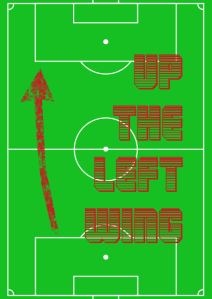 by Jay Baker
by Jay Baker

